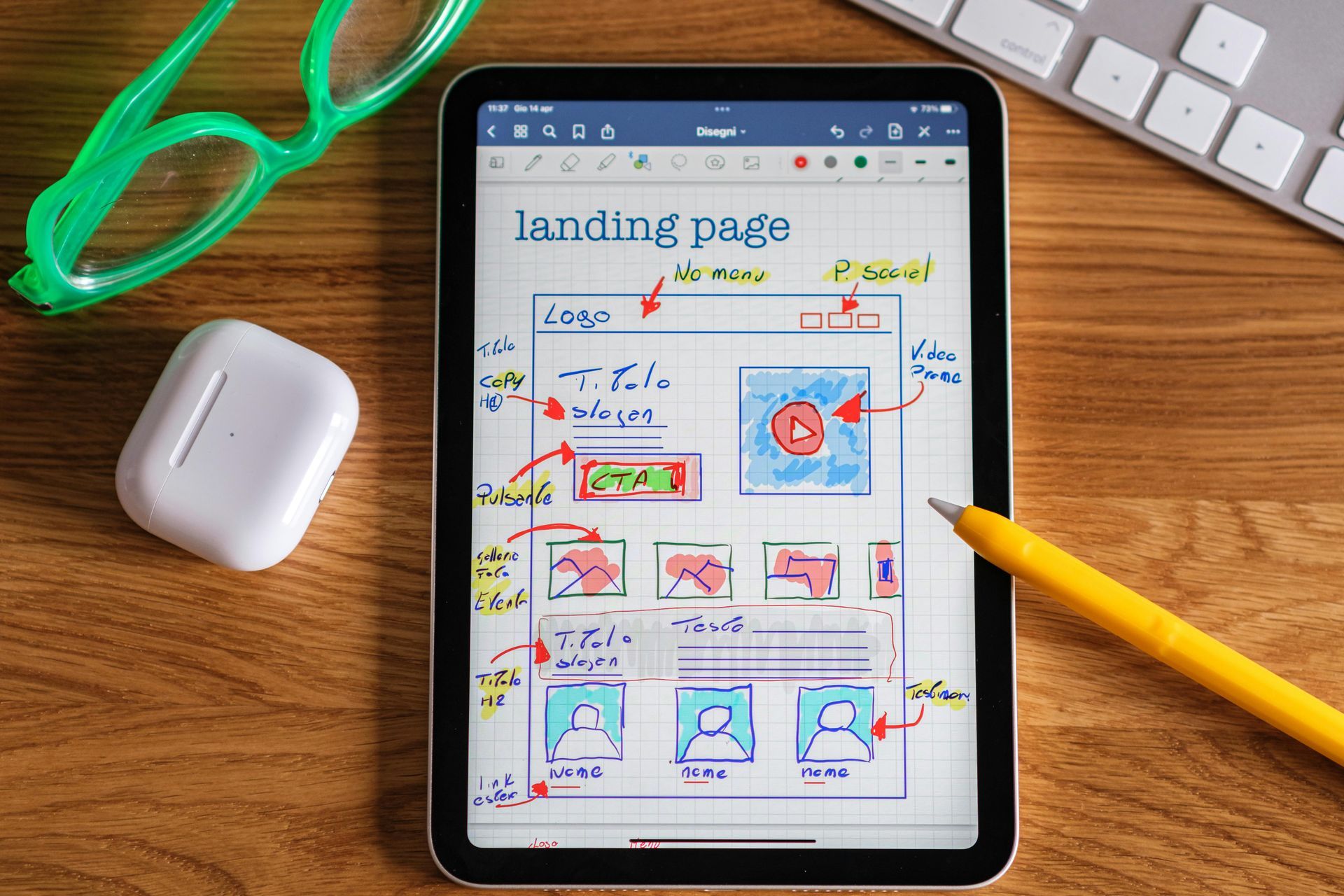
Managing finances in a restaurant is more than just balancing the books—it’s a constant challenge of keeping cash flow steady, ensuring payroll is accurate, and staying compliant with tax regulations. With 3-5% profit margins and high transaction volumes, even small financial missteps can have serious consequences.
Many restaurant operators rely on generalist CPAs or outdated accounting systems, only to find that their financial reports are inaccurate, tax filings are late, and cash flow projections are unclear. Multi-unit operators face even greater hurdles, juggling multiple locations while trying to maintain financial stability and growth.
Outsourcing accounting can provide relief, but choosing the right partner is critical. The best providers go beyond basic bookkeeping, offering real-time financial insights, seamless technology integration, and industry-specific expertise. With the right support, restaurant owners can shift their focus from managing spreadsheets to running and growing a successful business.
Here’s what to look for—and what to avoid—when selecting an outsourced accounting provider.
Understanding Your Restaurant’s Specific Needs
Finding the right outsourced accounting partner starts with understanding your restaurant’s unique financial challenges. Whether you operate a single location or a multi-unit franchise, your accounting needs will vary based on business size, operational complexity, and growth goals. A one-size-fits-all approach won’t work—your financial partner should be equipped to handle the nuances of restaurant finance at every stage.
How Size and Complexity Impact Financial Management
Every restaurant’s financial needs depend on its size and structure. A single-unit restaurant may only need basic bookkeeping, while a multi-unit operator must manage high transaction volumes, centralized reporting, and payroll across multiple locations. Franchisees face additional complexities, balancing brand requirements with independent financial oversight.
Operators who manage finances in-house often hit a breaking point as their business grows. Smaller restaurants may start with a local CPA or DIY bookkeeping, but as revenue and expenses increase, manual processes become unsustainable. A lack of dedicated financial expertise can lead to delayed reporting, tax filing errors, and difficulty tracking profitability.
The Role of Technology in Restaurant Accounting
Technology plays a critical role in modern restaurant financial management. Restaurants using Restaurant365, QuickBooks, or other accounting platforms need an outsourced provider who understands these systems and can seamlessly integrate financial data. Without this expertise, operators risk manual errors, inefficient reporting, and compliance issues.
An effective accounting partner should also be familiar with POS systems, payroll platforms, and inventory management software. The ability to extract and analyze data from these systems ensures accurate financial reporting and real-time insights.
Planning for Growth with Scalable Financial Solutions

As restaurants expand, financial management becomes more strategic. Adding locations, increasing staff, and handling franchise fees require deeper financial insights and better cash flow planning. A strong accounting partner provides forecasting, tax strategy, and growth-focused financial oversight.
For larger operators, outsourcing can go beyond bookkeeping. Some providers, like Global Shared Services (GSS), offer a Full-Time Equivalent (FTE) model, where outsourced accountants work as an integrated extension of an in-house financial team. This hybrid approach gives growing restaurant groups flexibility and scalability without the overhead costs of hiring full-time staff.
Choosing the right accounting provider is about finding a partner to support long-term growth, ensure compliance, and streamline financial operations.
Key Qualities to Look for in an Outsourced Accounting Partner
Not all outsourced accounting providers are the same. Some firms take a generalist approach, serving multiple industries without a deep understanding of restaurant finance. Others cannot scale with growing businesses, leaving operators struggling with delayed reports and inaccurate financials. Finding the right partner means looking beyond basic bookkeeping and ensuring they bring specialized expertise, reliability, and long-term value.
Restaurant Industry Expertise
Restaurant accounting involves more than tracking expenses and reconciling accounts. From fluctuating food costs to tip reporting and labor compliance, restaurant financials require specialized knowledge. A provider without direct experience in the industry may struggle to properly classify expenses, manage high transaction volumes, or ensure accurate tax filings.
Operators should look for an accounting partner who understands:
- Sales tax regulations that vary by location and dining format.
- Tip and payroll compliance to avoid costly violations.
- Inventory and food cost tracking to improve profit margins.
Accuracy and Timeliness
Delayed financials can cause cash flow disruptions, tax penalties, and difficulty making informed business decisions. A reliable accounting partner should:
- Deliver accurate, timely financial reports.
- Ensure bank reconciliations and payroll processing are completed without delays.
- Proactively identify financial discrepancies before they become bigger issues.
Communication and Relationship Management
An outsourced accounting partner shouldn’t just send reports—they should also act as a trusted financial advisor. Many restaurant operators express frustration with firms that fail to respond quickly or provide meaningful insights.
Strong communication means:
- Regular check-ins and updates to discuss financial performance.
- Quick responses to questions and concerns, preventing costly miscommunications.
- Proactive recommendations, such as cost-saving strategies or tax planning insights.
Technology Proficiency
Modern restaurant accounting relies on real-time data and automation. A strong accounting partner should be proficient in Restaurant365, QuickBooks, and other restaurant-specific financial tools. Seamless integration ensures:
- Accurate financial tracking across POS systems and payroll platforms.
- Automated reporting to reduce manual errors.
- Efficient data sharing, eliminating duplicate work and inconsistencies.
Red Flags to Watch Out For
Outsourcing accounting can be a game-changer for restaurant operators, but not all providers deliver the expertise and reliability needed. Many restaurants switch firms after dealing with missed deadlines, reporting errors, or poor communication. To avoid costly mistakes, restaurant owners should watch for these common red flags.
Generalist Firms Without Restaurant Experience
Restaurant accounting is vastly different from standard bookkeeping. High transaction volumes, fluctuating inventory costs, and strict compliance regulations require a provider with deep industry knowledge.
Firms that serve multiple industries without a dedicated focus on restaurants may struggle to:
- Accurately classify restaurant-specific expenses, like food costs, labor, and vendor payments.
- Handle tip reporting and payroll tax compliance, leading to potential legal issues.
- Understand the nature of restaurant finances, where cash flow fluctuations are common.
If a provider lacks a strong track record in the restaurant space, errors and inefficiencies are almost inevitable.
Inconsistent or Poor Communication
One of the biggest complaints from restaurant operators is accounting firms that are slow to respond or lack transparency. If a provider is difficult to reach, it can lead to financial blind spots, missed tax deadlines, and operational headaches.
Warning signs include:
- Long response times when questions arise.
- Unclear financial reporting, making it difficult to track cash flow.
- No regular check-ins or strategic guidance, leaving restaurant owners without financial insights.
Over-Reliance on Junior or Offshore Teams Without Oversight
Some firms lower costs by outsourcing accounting work to junior or offshore teams with minimal supervision. This can result in:
- Delays in financial reporting, causing uncertainty in decision-making.
- Errors in tax filings, payroll, and reconciliations, leading to compliance risks.
- A lack of industry-specific expertise, meaning restaurant operators must constantly explain their needs.
Not all offshore accounting is bad, but without proper oversight and quality control, service quality suffers.
Lack of Client Track Record
The outsourced accounting industry is easy to enter, but much harder to sustain than it appears to be. Many firms start with big promises but fail to deliver consistent, long-term service.
Warning signs include:
- A short operational history with no established client base.
- Limited case studies, testimonials, or references from restaurant operators.
- Inconsistent service levels or frequent client turnover.
A strong accounting partner should have a proven track record in restaurant finance, not just general bookkeeping experience.
Hidden Fees and Unclear Pricing
Some accounting firms advertise low-cost services upfront but later add fees for essential tasks like payroll processing, tax filings, or financial reporting. These unexpected costs can quickly add up, turning a seemingly affordable service into an expensive mistake.
When evaluating providers, restaurant owners should ask for:
- A clear breakdown of pricing and the included services.
- Upfront details on additional costs for extra support or reporting.
- Flexible contract terms that align with business needs.
Resistance to Technology Integration
A provider that isn’t proficient in Restaurant365, QuickBooks, or other restaurant-specific accounting tools can slow down financial processes and create manual
inefficiencies.
Warning signs include:
- Reliance on outdated spreadsheets instead of real-time financial tracking.
- Inability to integrate accounting with POS systems and payroll software.
- Lack of automated reporting, requiring manual data entry and reconciliation.
Conclusion
Choosing the right outsourced accounting partner is one of the most important financial decisions a restaurant operator can make. The best providers bring industry expertise, reliable accuracy, proactive communication, and the ability to scale alongside a growing business. They help restaurant operators focus on what matters most—running and growing their business with confidence.
For restaurants looking to optimize their financial operations, working with a team that specializes in the industry ensures smoother processes, fewer errors, and better long-term financial health. If your restaurant is considering outsourced accounting, now is the time to explore how the right partner can support your success.
Related Posts


Join our newsletter
Keep up-to-date with all things GSS by signing up for our newsletter.
Contact Us
We will get back to you as soon as possible.
Please try again later.
By subscribing you agree to our Privacy Policy.

Stay in the Loop
Get news and valuable insights with the GSS newsletter.
Contact Us
We will get back to you as soon as possible.
Please try again later.
By subscribing you agree to our Privacy Policy.
All Rights Reserved | Global Shared Services




